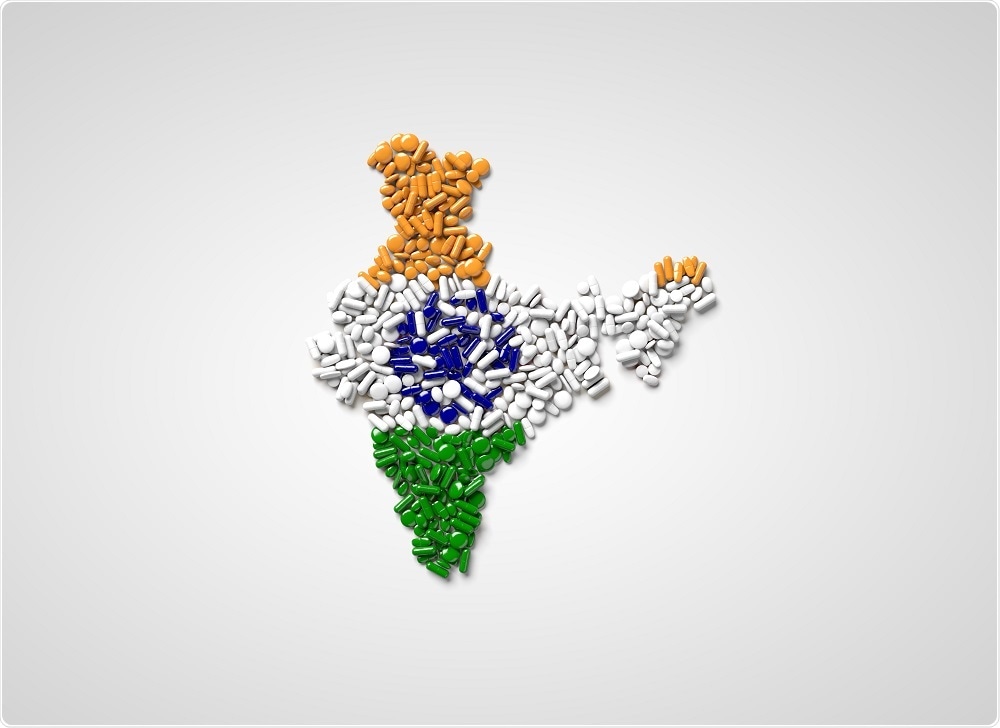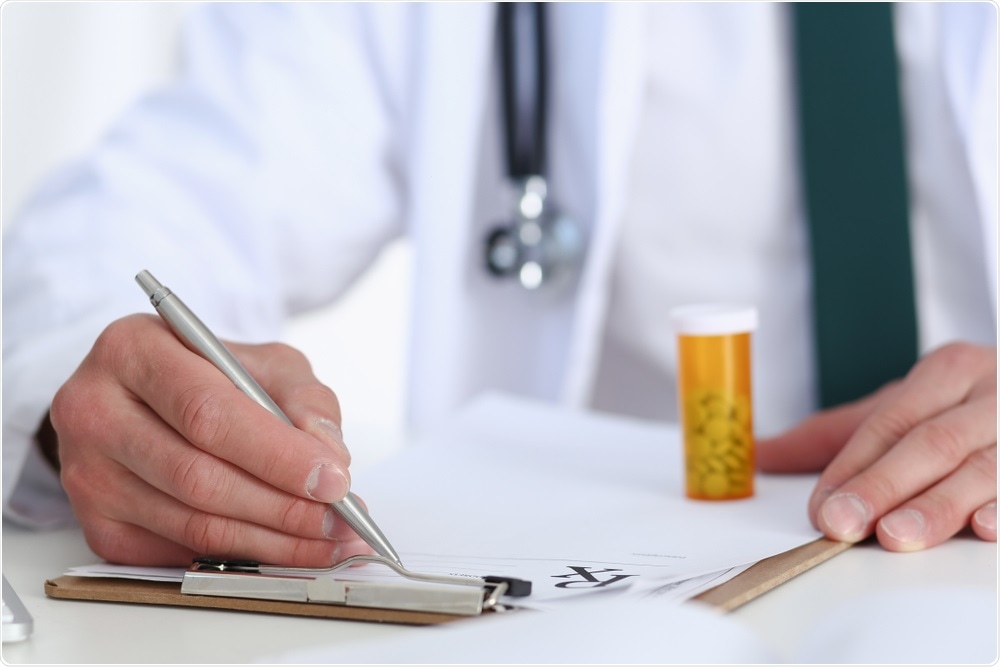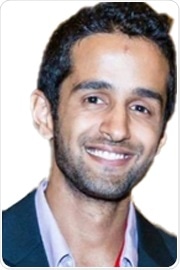 Digital Deliverance | Shutterstock
Digital Deliverance | Shutterstock
Our study found that patients frequently demand the shortest possible course of treatment and routinely switch healthcare providers to seek the fastest cure possible. Their first point of contact with the health system is often a chemist shop or an informal, untrained health provider outside urban settings.
These providers frequently disburse antibiotics as “quick cures” or “first aid treatment” and are often visited by pharmaceutical company representatives to prescribe newer analogs of antibiotics. Inadequate public health infrastructure, poor sanitation, and infection control practices in the primary healthcare system increase demand for parallel markets and further contribute to the overuse of antibiotics.
What conditions are antibiotics typically being used to treat in India?
Antibiotics are used to treat a host of clinical conditions in India, including bacterial infections as well as viral infections. In our study, we found that several formally trained medical doctors knew that antibiotics were not useful for viral infections, but prescribed or provided them anyway in some cases due to inadequate access to lab testing facilities, limited opportunities for follow-up of patients, and as a precautionary measure to compensate for poor sanitation and infection control practices.
We also noticed that antibiotics were irrationally prescribed for upper respiratory tract infections in several cases, even though these infections tend to be viral in nature. A few medical doctors also reported prescribing antibiotics for routine diarrheal ailments.
How dangerous is it to continuously provide antibiotics as a prophylactic treatment for patients in the hospital, for example?
Using antibiotics as a prophylactic measure can be indicated for various reasons. However, previous studies have shown the possible risk of developing antibiotic-resistant infections as a result. Several doctors reported that they prescribed antibiotics to patients in the outpatient setting as a precautionary measure to compensate for poor sanitation and infection control practices in the community.
Antibiotics were consequently seen as a precautionary measure to prevent future infections. It is crucial to implement standard infection control practices and ensure judicious management of antibiotics in order to ensure their effectiveness when required.
How are pharmaceutical companies contributing to the spread of antibiotic resistance?
Our study found that representatives from pharmaceutical companies not only visited allopathic doctors in the formal medical system but also managed to tap into the interconnected networks of informal providers in Paschim Bardhaman district. Approximately 58% of all surveyed informal providers (n=96) described pharmaceutical company representatives (PCRs) as their primary source of knowledge around antibiotics.
 Hanna Kuprevich | Shutterstock
Hanna Kuprevich | Shutterstock
These representatives often left medical literature with providers regarding the latest antibiotics on the market and even provided free samples of antibiotics for distribution. As such, the ability of pharmaceutical companies to target providers even within the most remote corners of a district in West Bengal often contributes to the irrational overuse of antibiotics.
Another important element worth mentioning is the fact that pharmaceutical companies play a crucial role in drug development, and the development of new antibiotics on the market has not kept pace with antibiotic resistance.
At an upcoming MSF Scientific Day, you will give a talk entitled “Without antibiotics, I cannot treat”. What do you mean by this, and how widespread is this opinion in the Indian medical community?
The quote comes directly from an informal health provider who was interviewed during the course of our study. Among informal health providers, antibiotics are seen as a vital part of patient care and treatment.
Patients frequently switch providers and demand quick cures, and informal providers are keen to satisfy patients or they risk losing them to other providers. In the formal medical system, the primary healthcare system is often plagued with inadequate infrastructure, poor access to diagnostic tests or laboratory culture facilities, inadequate sanitation, and infection control practices, and poor antibiotic stewardship practices.
The doctors in our study frequently reported disbursing a 3-day course of antibiotics to compensate for inconsistent treatment adherence and to encourage follow-up assessments when patients come to refill antibiotics. Many doctors also reported providing antibiotics as a precautionary measure to prevent future infections.
The MSF Scientific Day will take place on the 9th May 2019 at the Royal Society of Medicine, London. Click here to read the research agenda.
What is MSF doing to reduce the overuse of antibiotics in India?
MSF has conducted numerous workshops and behavior change communication sessions with stakeholders in the community to raise awareness about appropriate antibiotic use. During the course of the acute febrile illness project in West Bengal, MSF held a joint rally in collaboration with ANM Nursing School in Asansol District and conducted a workshop called ‘Antibiotic Resistance: Broader Implications for Humanity’ in Gupta College of Technological Sciences, Asansol.
MSF also held numerous stakeholder consultation meetings with the Indian Medical Association, technical experts at the Asansol District Hospital, Calcutta School of Tropical Medicine, and multiple district and state level authorities in West Bengal.
In other MSF projects such as our Holistic Center of Care for Advanced HIV in Patna, Bihar, we have been implementing antibiotic stewardship guidelines to prevent overuse, conducting prescription audits to understand patterns of use, and ensuring that standard infection prevention and control measures are in place.
 iviewfinder | Shutterstock
iviewfinder | Shutterstock
How can people support the work of MSF, both in India and other countries?
Please follow our social media pages and website to find out ways to contribute to the work MSF does both in India and worldwide. With respect to antibiotic use, always ensure that you comply with your doctor’s advice and take the right antibiotic for the right dose and duration. Do not purchase or consume antibiotics over-the-counter without consulting a doctor.
Where can readers find more information?
Please take a look at the MSF website to read about our former project in West Bengal and to find out more about our current projects.
About Mohit Nair
 Mohit Nair is a qualitative research manager with MSF in India. He holds a Master of Public Health degree from the Harvard T.H. Chan School of Public Health. His previous projects include understanding perceptions of care and treatment amongst advanced HIV patients in Bihar, assessing the drivers behind antibiotic use in West Bengal, and evaluating the quality of life of HIV-Kala Azar patients in Bihar.
Mohit Nair is a qualitative research manager with MSF in India. He holds a Master of Public Health degree from the Harvard T.H. Chan School of Public Health. His previous projects include understanding perceptions of care and treatment amongst advanced HIV patients in Bihar, assessing the drivers behind antibiotic use in West Bengal, and evaluating the quality of life of HIV-Kala Azar patients in Bihar.
Prior to joining MSF, Mohit worked as a research consultant with Save the Children in Laos to understand the gaps in the primary health system and develop a district-wide action plan for children with disabilities.
About Medicins Sans Frontieres (Doctors Without Borders)
Médecins Sans Frontières (MSF) translates to Doctors without Borders. We provide medical assistance to people affected by conflict, epidemics, disasters, or exclusion from healthcare. Our teams are made up of tens of thousands of health professionals, logistic and administrative staff - bound together by our charter.
Our actions are guided by medical ethics and the principles of impartiality, independence and neutrality. We are a non-profit, self-governed, member-based organization. MSF was founded in 1971 in Paris by a group of journalists and doctors. Today, we are a worldwide movement of more than 42,000 people.